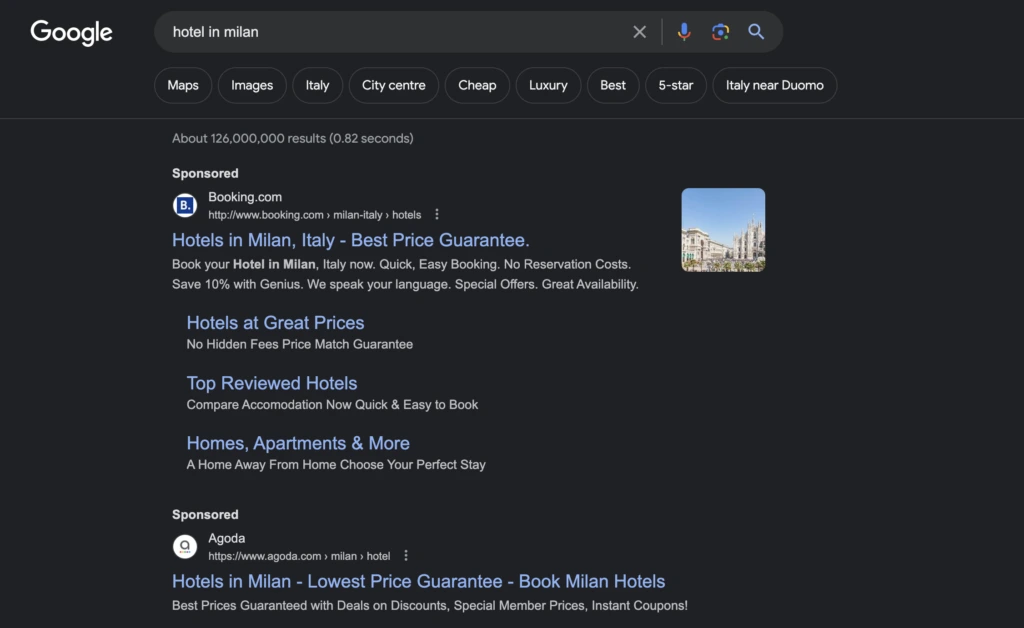In the vast realm of online marketing, two key strategies often take center stage: Search Engine Optimization (SEO) and Google Search Ads. While both aim to increase visibility and drive traffic to websites, there is often a debate about the necessity of Google Ads success. In this blog, we’ll explore the difference between Google Search Ads and SEO, diving into their distinct roles, potential synergies, and the factors to consider when determining their place in your digital marketing strategy.
Understanding SEO and Google Search Ads

Before diving into the question of necessity, let’s establish a clear understanding of Google Ads and SEO.
Google advertising, often referred to as pay-per-click (PPC), involves bidding on keywords to display ads on search engine results pages (SERPs). Advertisers participate in auctions where they bid on specific keywords or audience criteria to display their ads on search engine results pages (SERPs) or other advertising platforms. The predetermined cost, often referred to as Google Search Ads, is the amount that advertisers agree to pay each time a user clicks on their ad. This click serves as a direct interaction between the ad and the user, indicating their interest or intent. The Google Search Ads is typically influenced by factors such as keyword competition, ad quality, relevance, and the maximum bid set by the advertiser.
Advertisers have control over their budget and can set daily or campaign limits to manage their costs effectively. This model ensures that advertisers only pay when their ads generate actual clicks, making Google Search Ads a performance-based advertising method that offers a level of cost control and measurement in comparison to other forms of advertising.
On the other hand, SEO focuses on optimizing and tweaking a website’s organic visibility in search engine results through various techniques such as keyword research, on-page optimization, link building, and user experience enhancements.
SEO or Google Search Ads, Which to Choose?
SEO and Google Search Ads serve different purposes within a digital marketing strategy. Google Search Ads offers immediate visibility and instant traffic through paid advertising, enabling businesses to target specific keywords and audiences. It provides control over ad placement, ad copy, and budget allocation. On the contrary, SEO aims to improve organic rankings and long-term visibility without direct financial investments in advertising. It emphasizes the creation of high-quality, relevant content, user experience optimization, and building authority through natural link acquisition.
Downsides of Google Advertising and Potential Negative Effects

- Cost Considerations: One of the main downsides of Google Search Ads advertising is the potential for high costs, particularly in competitive industries or with popular keywords. Advertisers must carefully manage their budgets to avoid overspending on clicks that may not necessarily lead to conversions or desired outcomes. Inefficient campaign management or lack of optimization can result in wasted ad spend without the desired return on investment (ROI).
- Limited Long-Term Impact: While Google Ads marketing can provide immediate visibility and traffic, its impact may be limited to the duration of the campaign or as long as the budget allows. Once the advertising budget is exhausted or the campaign ends, the visibility and traffic generated through paid ads may decline significantly. This highlights the importance of complementing Google Ads with other long-term strategies such as SEO, content marketing, and building organic brand presence.
- Dependency on Ad Platforms: Google Ads advertising relies on third-party platforms, such as search engines or social media platforms, to display ads. This creates a certain level of dependency on these platforms and their algorithms, policies, and pricing structures. Changes in ad policies, algorithms, or competitive landscape can affect the effectiveness and costs associated with Google Ads campaigns. Businesses should be prepared to adapt their strategies accordingly and diversify their marketing efforts to mitigate potential negative impacts.
- Ad Blindness and Ad Fatigue: As online users are exposed to a constant influx of advertisements, they may develop ad blindness or ad fatigue, where they become less responsive or entirely ignore ads. This can diminish the effectiveness of Google Search Ads campaigns, leading to lower click-through rates and reduced conversions. Advertisers must continuously refresh and optimize their ad creatives to maintain engagement and combat ad blindness. In the end, organic search is more appealing than sponsored search. This is why you should focus on building a strong website system and use Google Ads as a helping hand.
Factors to Consider
When determining the necessity of Google Ads, several factors should be taken into account:
- Budget: Google Ads advertising involves costs, as advertisers pay for each click. Consider your available budget and allocate funds accordingly, ensuring a balance between Google Ads and SEO investments. Having a specific amount of budget ensures that you will not be overpaying.
- Goals and Timeline: Clarify your marketing goals and the desired timeline for results. If immediate visibility and quick traffic are crucial, Google Search Ads can be a valuable addition. For long-term organic growth and sustainable visibility, SEO remains essential.
- Competition and Industry: Assess the competitiveness of your industry and the effectiveness of Google Ads campaigns in reaching your target audience. In highly competitive markets, Google Ads can help gain initial traction, while SEO becomes crucial for maintaining visibility and driving organic traffic.
Conclusion
In conclusion, while Google Search Ads can provide immediate visibility and targeted traffic, SEO remains the foundation for sustainable organic growth. Opting for SEO over paying for Google Search Ads ads offers numerous advantages and long-term benefits for businesses. By investing in SEO strategies, businesses can achieve sustainable organic visibility on search engine results pages (SERPs) and attract targeted organic traffic. Unlike Google Search Ads that require ongoing payments, SEO focuses on improving website content, optimizing technical aspects, and building high-quality backlinks to enhance search engine rankings.
SEO provides greater control and ownership of the website’s online presence, allowing businesses to establish credibility, trust, and brand authority. Additionally, organic search results often generate higher click-through rates and have a higher chance of converting visitors into customers. While Google Search Ads ads can deliver immediate results, SEO offers a cost-effective approach that yields long-lasting organic traffic and results.
By prioritizing SEO efforts, businesses can enjoy increased online visibility, brand exposure, and sustainable growth in the digital landscape.
Yes Web Design Studio
Tel. : 096-879-5445
LINE : @yeswebdesign
E-mail : info@yeswebdesignstudio.com
Facebook : Yes Web Design Studio I Web Design Company Bangkok
Instagram : yeswebdesign_bkk
Address : 17th Floor, Wittayakit Building, Phayathai Rd, Wang Mai, Pathum Wan, Bangkok 10330 (BTS SIAM STATION)








